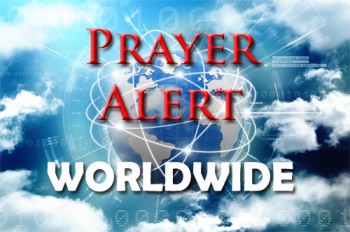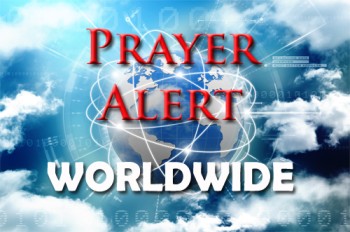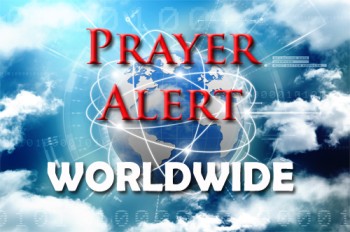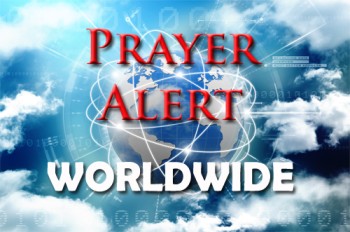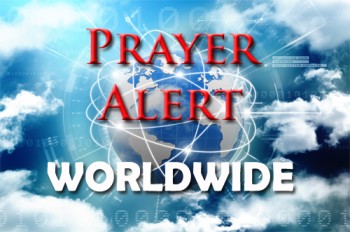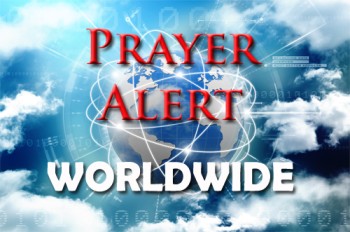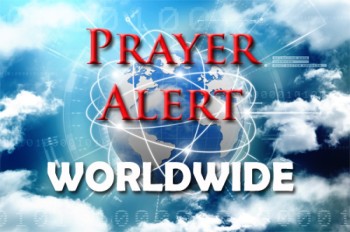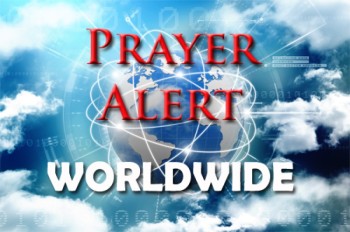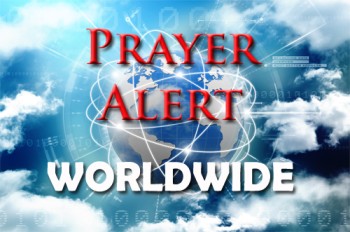Displaying items by tag: Brazil
Brazil: tussle between conservationists and musicians over endangered trees
Tim Baker has spent more than four decades crafting world-class bows for violins and cellos - the very tools which, as he puts it, give musicians their ‘voice’. But now his longstanding craft is caught in the middle of an urgent conservation battle. Brazilwood, also known as pernambuco, is the prized, endangered timber used in most professional bows, beloved for its strength and resonance. With the tree’s population reduced by 84% due to centuries of overharvesting and ongoing illegal logging, Brazil is pushing for the highest level of international trade protection. Advocates say drastic action is needed to save the species, but musicians fear that tighter restrictions could ground performers, expose their bows to confiscation, and make global touring nearly impossible without complex permits. Conservationists and performers alike agree that the status quo is unsustainable, but they need to agree on a plan that protects both music and nature.
Brazil: hundreds of Indigenous protesters at COP30 demand real protection
On 11 November hundreds of Indigenous activists stormed the UN COP30 climate summit in Belém, demanding real protection for their lands and rights amid growing frustration over government inaction. The protests, led by Amazonian communities, erupted as president Luiz Inácio Lula da Silva promoted his administration’s commitment to Indigenous inclusion - claims protesters say ring hollow while oil drilling, logging, and mining continue to threaten the rainforest. ‘We can’t eat money’, said Gilmar of the Tupinamba community, voicing anger at the summit’s focus on climate finance over preservation. The demonstrations followed the arrival of the Yaku Mama protest flotilla, which sailed over two thousand miles to call attention to Indigenous leadership in environmental stewardship. Despite Lula’s rhetoric, Brazil’s state oil company has just received approval to begin exploratory offshore drilling near the Amazon’s mouth. This year’s meeting is the first to take place since the International Court of Justice ruled that countries must meet their climate obligations and that failing to do so could violate international law. Note: the four nations responsible for almost 50% of global pollution (Russia, China, India, and the USA) are not even attending COP30. The conference is a major focus for prayer, as churches become more and more aware of the climate crisis. For a link to the John Stott lecture on 20 November, which will focus on the challenges which the world is facing and a Christian response, see
Brazil: at least 64 dead after massive law enforcement operation
At least 64 people, including four police officers, have been killed during a massive law enforcement operation in Rio de Janeiro - the deadliest in the city’s history. Governor Claudio Castro hailed the raids as a decisive blow against organised crime, but the high civilian toll has sparked national and international alarm. Operation Containment targeted the powerful Comando Vermelho gang, deploying 2,500 officers with helicopters and armoured vehicles across the Alemao and Penha favelas. Bystanders were reportedly caught in the crossfire, reigniting debate over police tactics, human rights, and the heavy cost of Brazil’s drug war. For many residents of Rio’s poorest neighbourhoods, the tragedy underscores a grim reality - they are trapped between violent gangs and aggressive law enforcement. Human rights groups have questioned the timing of such a large-scale operation, less than two weeks before the UN climate summit COP30 begins. As Brazil heads for a national election in 2026, the threat of criminal violence and drug trafficking is expected to take centre stage.
Brazil: Lula talks with Trump about tariffs
President Luiz Inácio Lula da Silva has urged Donald Trump to remove the 40% tariff recently imposed on Brazilian imports. The two leaders held a thirty-minute phone conversation, exchanging direct contact numbers and discussing trade and economic cooperation. Lula reiterated his invitation for Trump to attend the upcoming climate summit in Belém and said that Brazil remains one of the few G20 nations with which the United States enjoys a trade surplus. Trump described the discussion as positive, noting plans for future meetings in both countries. The tariffs, added to an earlier 10% duty, were justified by the Trump administration as a response to Brazil’s internal political instability following former president Jair Bolsonaro’s conviction for attempting a coup. Despite tensions, the leaders’ dialogue signals an effort to preserve economic ties and foster mutual understanding between the Western Hemisphere’s two largest democracies.
Brazil: convicted president Bolsonaro rushed to hospital
Former president Jair Bolsonaro was rushed to a Brasília hospital after experiencing severe hiccups, vomiting, and low blood pressure while under house arrest, his son announced. Bolsonaro, who has endured ongoing intestinal problems and six surgeries following a 2018 stabbing, had visited the same hospital days earlier for skin lesion biopsies. On 11 September Brazil’s supreme court sentenced him to 27 years and three months in prison for plotting a coup after losing the 2022 election to Luiz Inácio Lula da Silva; he has not yet been imprisoned because of appeals and procedural delays. In a separate case, a federal court has fined him one million reais (£138,000) for racist remarks made in 2021. Bolsonaro has denied wrongdoing, claiming to be the victim of political persecution, and Donald Trump has also called the trial a ‘witch-hunt’, but Lula has spoken of a ‘historic decision’ which safeguards Brazil’s democratic principles. Public opinion remains sharply divided over his sentence and political future.
Argentina: financial woes after Milei’s party loses badly in local elections
Argentina’s political and financial turbulence deepened after Javier Milei’s party suffered a heavy defeat to the Peronist opposition in key local elections. The peso tumbled to a historic low, sliding nearly 5 percent against the US dollar, while stocks and international bonds plunged sharply, sparking concerns over Argentina’s economic stability. Milei’s reform agenda, once hailed as a potential turning point, now faces major obstacles as midterm elections loom on 26 October. Markets fear the government may burn through reserves to defend the peso, undermining its IMF-backed programme and raising the risk of default. The Peronists’ wider-than-expected 13-point victory in Buenos Aires province highlighted Milei’s growing political challenges. These are compounded by corruption allegations involving his sister. Investor confidence, already shaken, has deteriorated further, with bonds and equities suffering their steepest losses since Argentina’s 2020 restructuring.
Brazil: former president Bolsonaro put under house arrest
Brazil’s supreme court has placed former president Jair Bolsonaro under house arrest as he stands trial for allegedly plotting a coup to overturn the 2022 election won by Luiz Inacio Lula da Silva. Justice Alexandre de Moraes, citing violations of restrictions on Bolsonaro’s social media activity and political messaging, has ordered the measure. Bolsonaro, accused of leading an armed criminal group and attempting to abolish democratic rule, faces up to twelve years in prison if convicted. The prosecution links him to the January 2023 storming of Brazil’s congress and other institutions by his supporters. Bolsonaro denies all charges, calling the case a political witch hunt. The ruling has sparked political tensions, with Donald Trump’s administration imposing tariffs on Brazil and sanctions on Moraes, which Lula has called ‘unacceptable’. Bolsonaro’s movements are now restricted, and his communications have been seized; only close family and lawyers are allowed to visit. There have been widespread rallies to protest this decision: see
Brazil: police raid ex-president’s home
Brazil’s supreme court has ordered strict sanctions on former president Jair Bolsonaro amid an ongoing criminal trial accusing him of plotting to overturn the 2022 election. Police raided his home and headquarters, fitted him with an electronic ankle tag, and imposed bans on foreign contacts, embassies, and social media use. The court cited flight risk concerns, though Bolsonaro denied any intention to flee, calling the measures a 'supreme humiliation.' The USA has reacted controversially, with Secretary of State Marco Rubio revoking visas for Brazilian justices involved, labelling the trial a 'political witch hunt.' Bolsonaro’s close ties with Donald Trump and claims of US interference have sparked a diplomatic storm. Allegations include collusion with the USA to impose retaliatory trade tariffs. Meanwhile, he could face over 40 years in prison if convicted of orchestrating a coup, with charges also implicating his son. As tensions rise, the situation highlights deepening global political entanglements and ongoing challenges to democratic accountability in Brazil.
Brazil: offshore oil exploration auctions test Lula’s climate pledges
In a northern region of Brazil known as the Equatorial Margin, where the Amazon River meets the Atlantic, a major environmental and political debate is unfolding. After researching the possibility of offshore oil reserves, the government decided to hold auctions to sell exploration rights in this area. President Lula da Silva, known for his environmental pledges, including a promise of ‘zero deforestation’ in 2023, now supports allowing drilling ‘to fund our energy transition’ and bolster the economy. Critics argue this contradicts his public stance and undermines Brazil’s credibility as it prepares to host COP30. Environmental organisations and even the federal prosecutor’s office challenged the oil auctions, citing inadequate environmental reviews and community consultation. Despite their efforts, they went ahead, with major corporations like Chevron and Petrobras securing exploration rights. Brazil’s environmental agency had initially rejected drilling permits, but its decision was overruled by its own director under government pressure. The outcome reflects Brazil’s struggle to reconcile economic needs with ecological stewardship.
Brazil: seeking to restore the land with seed and songs
In Brazil’s hottest region, the Maxakali indigenous people are restoring life to their ancestral land through an agroforestry project called Hāmhi Terra Viva. Amid soaring temperatures and rampant wildfires worsened by invasive guinea grass (introduced by cattle farmers) and widespread deforestation of the Atlantic Forest, the Maxakali are reviving traditional planting methods infused with ancestral songs. Once lush with biodiversity, the forest is now over 85% destroyed, leaving their territory dry, scorched, and vulnerable to climate extremes. In response, they have replanted over 215 hectares of fruit trees and native vegetation and formed fire brigades using traditional techniques. Music is central: songs, rich in ecological knowledge, guide daily work and honor the spiritual connections between people and nature. These songs contain forgotten names and behaviours of now-vanished species, serving as living archives of the forest’s past. By combining ritual, reforestation, and community effort, the Maxakali are resisting ecological collapse and calling on both nature and ancestors to help the land heal.
